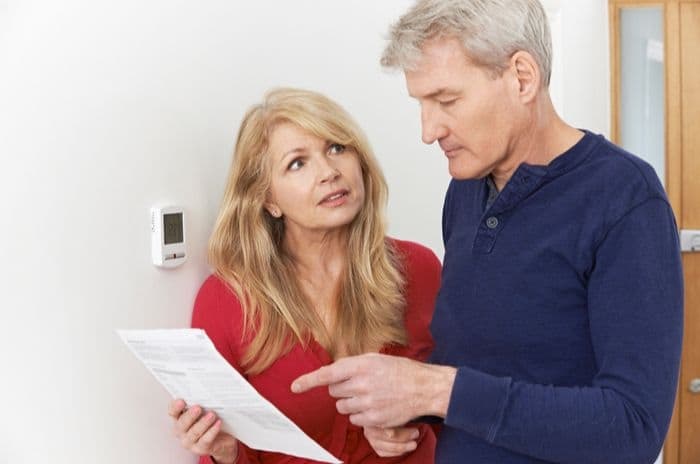Home > Energy > News > 55% of disabled adults struggling with energy bills
55% of disabled adults struggling with energy bills
The Office for National Statistics (ONS) have found more than half of disabled adults are finding it difficult to afford their energy bills, while 40% of non-disabled adults are also struggling.
The ONS's latest Opinions and Lifestyle survey found 55% of disabled adults reported finding it difficult to afford their energy bills, with around 1 in 15 in arrears.
Yet, so far, the Government support package for energy bills and the cost of living crisis is largely overlooking the increased cost disabled people face for energy.
The Disability Cost of Living Payment was £150 paid directly in September, yet other than this, recipients of DLA, PIP, and AA benefits aren't included in the £650 Cost of Living Payment, and they've also been removed from the Warm Home Discount scheme.

Unaffordable energy bills
The Office for National Statistics (ONS) revealed their findings from the Opinions and Lifestyle Survey carried out between June to September 2022.
The ONS survey focused on affordability of energy, mortgage and rental payments and how the rising cost of living was affecting people's affordability to pay their primary bills.
One of the most worrying statistics revealed by the ONS is over half (55%) of disabled adults were reporting it difficult to afford their energy bills, which was 15% more than for non-disabled people (40%).
Its unsurprising energy bills are becoming a major feature of affordability and debt surveys, with the cost of energy having increased 95% between October 2021 and October 2022, even taking into account the Energy Price Guarantee.
The FCA's most recent Financial Lives survey, published in October 2022, found one in four UK adults were facing financial difficulty, with little or no savings leaving them with very low financial resilience to unexpected or higher than usual bills.
The ONS survey also found almost half of all adults (45%) were struggling with their energy bills, an increase of 5% from the previous March to June period. 30% of adults were also struggling with mortgage or rental payments, which has also increased by 4%.
Despite the energy help package announced by the Government back in May 2022, and the additional Energy Price Guarantee, announced in September, the End Fuel Poverty Coalition are still estimating as many as 7 million households will be in fuel poverty from 1 October 2022, and this could rise to as much as 10.7 million when the Energy Price Guarantee ends in April 2023.
Lack of disability support
The Government has so far only provided people in receipt of disability benefits a £150 cost of living payment, which was paid directly in September 2021.
While people with disabilities will receive the £400 energy bill credit provided to every household in the UK, disability benefits such as Disability Living Allowance (DLA), Personal Independent Payments (PIP), and Attendance Allowance (AA) are not included in the eligibility criteria of means-tested benefits for the additional £650 cost of living grant.
In addition, the Government announced changes to the Warm Home Discount scheme in April 2022, which removed DLA, PIP and AA benefits from the eligibility criteria of the new Core Group 2.
However, this restriction in additional help for disabled adults has prompted calls from a range of charities and consumers groups for failing to provide them with enough help to manage through the winter.
Many people living with disabilities are likely to spend more time at home during the day, as well as have higher likelihoods of existing conditions and illnesses exacerbated by the cold, and a requirement for mains powered equipment for day-to-day living.
In August 2022 for example, Disability Rights UK, a member of the Disability Poverty Campaign Group (DPCG), wrote to the Chancellor urging him to put in place additional support that it believes could help to save the lives of people with disabilities this winter.
The DPCG called for PIP, DLA and AA benefits to be uprated in line with inflation, further targeted non-repayment support for disabled people in vulnerable circumstances, increased protection for disabled people on prepayment meters who may face self-disconnection, and a reversal to the Warm Home Discount changes that removed PIP and DLA claimants from the scheme eligibility.
It's vital that the Government accept the reality of increased energy bills for many disabled people and ensure that extra support is provided for them.
While local authorities have been given an additional £500 million of funding to provide targeted support to the most vulnerable households, in the form of the Household Support Fund, the onus is very much on the consumer to attempt to claim that help.
Related Guides

We are independent of all of the products and services we compare.

We order our comparison tables by price or feature and never by referral revenue.

We donate at least 5% of our profits to charity, and we have a climate positive workforce.
Get insider tips and the latest offers in our newsletter
Latest News

02 January 2024
Energy prices increase by 5%
23 November 2023
Energy price cap to rise 5% in January 2024
24 October 2023
Energy companies must do more to support customers





Comments